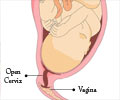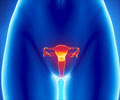Role of Food in Fighting Cancer
Creating 'good food habits' could be one of the easiest ways of fighting cancer. Oncologists and researchers have accepted the role that 'right food' can play, not only in regressing the advance of cancer but also in preventing it from occurring. The best diet to follow is one with lots of salads, vegetables, fruits, sprouts and nuts.
While diet alone cannot reverse the course of cancerous cells, it can deprive the tumors of its essentials. Carrots, grapes and soya beans have Cox-2 compounds which hinder the growth of new blood vessels, which are vital for the tumor to progress. Fruits and vegetables are rich in antioxidants which clean up free radicals (oxygen molecules generated by human activity which move around in the cells, stealing electrons from other molecules and triggering a tit-for-tat reaction which can damage DNA).
Dietary changes can also lower the risk for specific cancers. Up to 50 per cent of breast cancers, 33 per cent of lung cancers and 75 per cent of colon and rectal cancers can be avoided by following specific diets.
A tumor goes through three stages and food can play a beneficiary role in all the stages.
Stage I:
Initiation - An external or internal carcinogen induces changes in the genetic make-up of the cell. This creates a lesion which gives the cell the potential for tumorous growth.
Role of food:
Diets high in vegetables and fruits, and the intake of food rich in bio-active compounds, trigger detoxification enzymes which, in turn, reduce the exposure of DNA to carcinogens.
- Onions and garlic have allium which has anticarcinogenic mechanisms
- Cruiciferous vegetables like cabbage and cauliflower have dithiothiones which inhibits enzymes that activate carcinogens
Stage II:
Promotion - At this stage, the prolific cells transform into a discernible group.
Role of food:
The energy balance must be maintained as it will thwart the expansion of abnormal cells. Selenium and vitamin D have shown a protective effect against tumor promotion.
- Selenium (a mineral) is found in cereals, fish, liver and seafood. It has an antioxidant capacity and functions as a co-factor for glutathione peroxidase, an enzyme that prevents tissue damage.
- Vitamin D is present in milk, yogurt, curd, small fish (when eaten with their bones, like sardines) and egg yolk.
Stage III:
Progression - The local lesion transforms into an invasive tumor mass. There is widespread DNA damage. Ultimately there is metastasis, whereby tumor cells migrate to distant sites in the body.
Role of food:
Folates in green, leafy vegetables and wholegrain cereals may help reduce damage to DNA.
- Fruits and vegetables have carotenoid (pigments) that have antioxidant properties.
- Beta-carotene is found in abundance in spinach, carrots, sweet potatoes and mangoes.
How different foods help fight cancer:
- Carrots - the antioxidants include alpha-carotene and beta-carotene
- Cauliflower - the indoles promote the production of enzymes that make the hormone estrogen less effective, reducing the risk of breast cancer
- Tomatoes - the lycopene neutralizes cancer-causing substances. Ten servings a week may help reduce risk of prostate cancer by half.
- Cabbage, turnips - the phytochemical, phenethyl isothiocyanate, hampers the development of lung cancer
- Ginger - suppresses the creation of adducts, formed by the reaction of chemical carcinogens with DNA
- Garlic, onions - the allium vegetables contain organosulphides that lower the risk of gastrointestinal cancers
- Apples - the caffeic acid increases the production of enzymes that make carcinogens more soluble in water and ultimately ejects them from the body
- Grapes - the ellagic acid is a scavenger of carcinogens.
- Oranges - the terpenes may prevent lung cancer; while beta-cryptoxanthin is an anti-cancer carotenoid
Food that is detrimental
- Consumption of red meat-beef, pork and lamb could increase the risk of cancer, especially colorectal, pancreatic, breast, colon and renal cancers.
- Fat is another suspect. Indian sweets contain loads of fat and sugar and digesting them produces bile acids which can transform into substances that promote colon canter. It also causes hormones levels to shoot up and increases the growth of breast and prostate cancers.
- Excessive drinking causes cancer of mouth, throat, oesophagus and liver.
Tips to work fruits and vegetables into your busy schedule
- Put fruits that don't need refrigerating where you can see them. Make a habit of grabbing a few on the way out.
- Keep a bag of your favourite vegetables, cut into sticks, in the freezer. It will last months.
- Keep fruit canned in 100 per cent juice in your kitchen.
- Keep assorted dried fruits like raisins, apricots, peaches, pears, figs and dates, in your desk.
- Keep bottles of fruit juice in the refrigerator instead of aerated drinks.
- Whenever eating out, make it a point to order salads and fruit juice instead of junk food.















